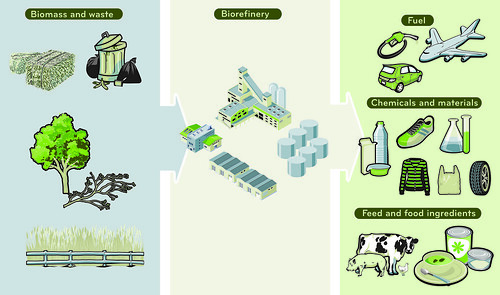The European Forum for Industrial Biotechnology 2013 (EFIB 2013) took place last week from 30 September to 2 October in Brussels and the SusChem inspired Bioeconomy PPP was centre stage. This sixth edition of EFIB, organised by SusChem founding partner EuropaBio, was by far the biggest yet and underlined the remarkable expansion of interest in industrial biotechnology across Europe and globally in recent years.
EFIB 2013 took place in The Square conference facility in central Brussels and was one of the highlights of European Biotech week. Over 600 delegates attended and an extensive biotech market place saw more than 45 exhibitors and 20 technology showcase presentations. And, of course, two whole days of conference sessions.
Biobased Initiative
The BioBased Industries Joint Technology Initiative (JTI) is seen as a major opportunity for European biobased industries and an essential element to achieve a sustainable chemical sector. The initiative is one of the new JTIs that will be established under Horizon 2020 and was explicitly mentioned in the Communication on the Industrial Innovation Package published in July.
The Biobased Industries JTI, previously known as the BRIDGE 2020 public-private-partnership (PPP) proposal, has the primary aim of developing new and competitive biobased value chains that can replace the need for fossil fuels and also have a strong impact on rural development in Europe.
A dedicated session on the BioBased Industries JTI at EFIB 2013 was chaired and introduced by Marcel Wubbolts of DSM and a SusChem board member (on left of photo below). He described a biobased market that could be as large €200 billion by 2020 with the potential to create one million new jobs in Europe on the same timescale.
The role of the JTI is to demonstrate the production of innovative and sustainable biobased chemicals and materials that would be made using locally sourced biomass. The JTI will examine five value chains with each using a flagship project to provide validation at at least demonstration level.
The Biobased Industries Consortium (BIC) is the body that will be tasked with establishing the JTI once the formal go-ahead is given by the European Commission. Membership of the BIC is growing with 48 full members (mostly industrial), 57 associate members (including research and technology organisations and universities), 8 EU trade or sector associations and 3 European Technology Platform members including SusChem.
Wubbolts explained that the BioBased Industries JTI was currently presenting its strategic innovation roadmap to Member States and preparing initial research and innovation calls. If all goes to plan, the JTI will formally start in 2014 with the first calls out in mid 2014 and initial projects commencing in Q3/ Q4 2014.
Perspectives
Barend Verachtert, acting Head of the Biotechnologies Unit at the European Commission’s DG Research and Innovation (in centre of photo) gave the Commission’s perspective on the Biobased Industries JTI declaring that: “Worldwide the bioeconomy race is on!”
But while third country investments had largely focused on food the EU focus was on integrated biorefineries – one of SusChem’s original visionary projects from 2004. The target was to produce at least 30% of EU chemicals from renewable sources by 2030, compared to around 10% today, Verachtert stated.
He also emphasised the strong regional potential for biobased industries and this raised a significant challenge to organise at both EU and national / regional level.

The BioBased Industries JTI was needed as a catalyser to create new value chains involving cross-sectorial collaborations between previously unrelated sectors. Verachtert highlighted the need for large-scale demonstration facilities and activities to help market uptake of biobased innovations and the notion of establishing a circular economy where waste (for example from agriculture) was transformed into value (such as chemical products).
He also was hopeful of final decisions on the JTI before end of 2013. Horizon 2020 should be officially adopted 10 December and this will allow the BioBased Industries JTI to start for real on 1 January 2014.
The view of a Member State was given by Jose Manuel Gonzalez of the Spanish Ministry of Economy and Competitiveness (on right in photo). He indicated that the JTI was extremely well aligned with Spanish national biorefinery objectives: a sector with huge industrial potential.
In a question and answer session Marcel Wubbolts reiterated that the Consortium was looking for the JTI to be realised as soon as possible. But at the same time there was a need to manage the portfolio of proposed projects to ensure synergy and maximum impact.
For more information on the BioBased Industries JTI visit the website or contact the BioBased Industries Consortium secretariat.



No comments:
Post a Comment
Please post your comment here. Please note that this newsblog is not moderated.
Note: only a member of this blog may post a comment.